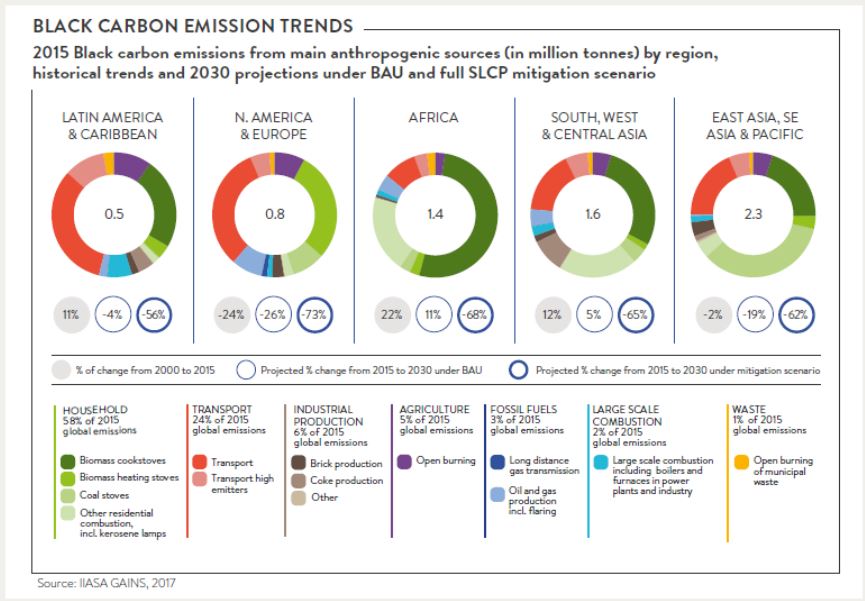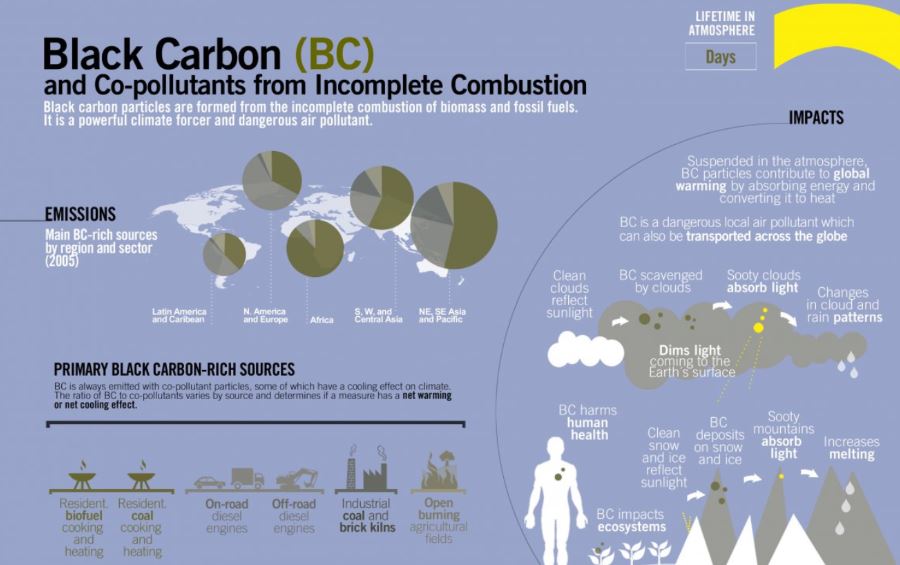Black Carbon
2020 MAR 4
Preliminary >
Environment and Ecology > Pollution > Air pollution
In news?
- Black carbon concentrations near the Gangotri glacier rose 400 times in summer due to forest fires and stubble burning from agricultural waste, and triggered glacial melt, says a study by scientists at the Wadia Institute of Himalayan Geology (WIHG).
About Black Carbon
- Black carbon is a potent climate-warming component of particulate matter formed by the incomplete combustion of fossil fuels, wood and other fuels.
- The complex mixture of particulate matter resulting from incomplete combustion is often referred to as soot.
- Black carbon is a short-lived climate pollutant with a lifetime of only days to weeks after release in the atmosphere.
- During this short period of time, black carbon can have significant direct and indirect impacts on the climate, glacial regions, agriculture and human health.
- Several studies have demonstrated that measures to prevent black carbon emissions can reduce near-term warming of the climate, increase crop yields and prevent premature deaths.
Sources of Black Carbon

Black Carbon Impacts
- CLIMATE IMPACTS
- Black carbon is an important contributor to warming because it is very effective at absorbing light and heating its surroundings.
- When deposited on ice and snow, black carbon and co-emitted particles reduce surface albedo (the ability to reflect sunlight) and heat the surface.
- The Arctic and glaciated regions such as the Himalayas are particularly vulnerable to melting as a result.
- HEALTH IMPACTS
- Black carbon and its co-pollutants are key components of fine particulate matter (PM2.5) air pollution.
- PM2.5 has been linked to a number of health impacts including premature death in adults with heart and lung disease, strokes, heart attacks, chronic respiratory disease such as bronchitis, aggravated asthma and other cardio-respiratory symptoms.
- ECOLOGICAL IMPACTS
- Black carbon can affect the health of ecosystems in several ways: by depositing on plant leaves and increasing their temperature, dimming sunlight that reaches the earth, and modifying rainfall patterns.

PRELIMS QUESTION:
Q. Which of the following statements regarding black carbon is/are correct?
1. It is formed by the incomplete combustion of fossil fuels, wood and other fuels
2. It is a short-lived climate pollutant which can potentially cause global warming
3. Deposition of black carbon on ice can lead to faster melting of ice
Select the correct answer using the code given below:
a) 1 and 2 only
b) 2 and 3 only
c) 1 and 3 only
d) 1,2 and 3
Answer to Prelims question